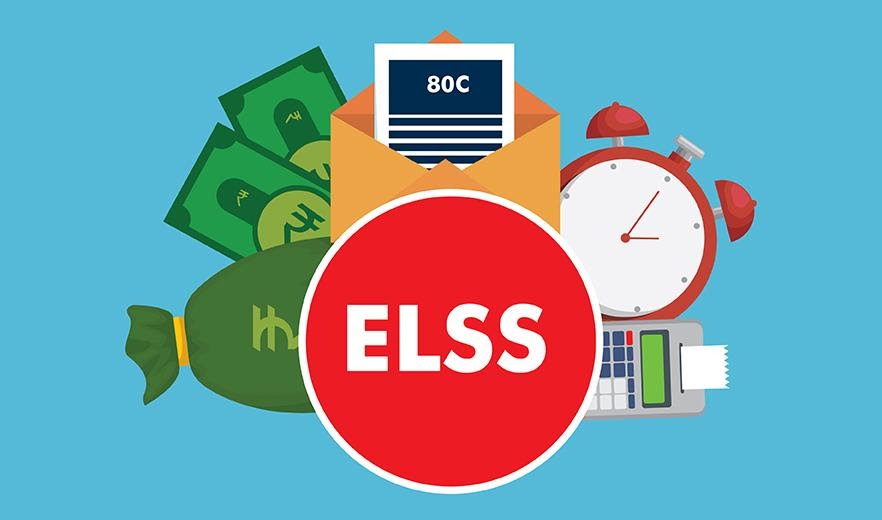Equity Linked Savings Scheme (ELSS) funds are diversified equity mutual funds that provide tax benefits under Section 80C of the Income Tax Act. ELSS funds have emerged as one of the most popular investment options for individuals looking to save tax and generate long-term wealth. Here’s an overview of how investing in ELSS can help you earn good returns and reduce your tax.
Tax Benefits of Investing in ELSS Funds
Tax saving mutual funds like ELSS allow investors to claim tax deductions under Section 80C and potentially earn higher returns through equity exposure.
For example, if you invest Rs. 1.5 lakh in ELSS, your taxable income is reduced by the same amount. This results in substantial tax savings each year.
Further, ELSS funds come with the shortest lock-in period of 3 years compared to other tax-saving instruments like PPF, NSC etc., which have longer lock-in periods of 5-15 years. While you cannot withdraw your ELSS investment before 3 years, the upside is that it gives you liquidity sooner than other options.
Wealth Creation through Equity Exposure
Unlike traditional tax-saving investments like PPF, NSC and bank FDs, which only provide fixed returns, ELSS funds invest your money into a basket of equity stocks and equity-oriented instruments.
This exposes you to the stock markets and allows your money to grow by capital appreciation over the long run. The key is that ELSS funds invest across sectors and market caps, thereby providing you diversification and reducing your overall risk.
For instance, the average annual returns from leading ELSS funds over the past 5-10 years have been 15-22%. Although past performance is no guarantee of future returns, investing in equity through ELSS funds can earn inflation-beating returns in the long term. This can help you build a larger retirement corpus or meet other financial goals.
One of the key mutual fund tax benefits is that tax-saving mutual funds such as ELSS allow investors to claim a deduction of up to Rs 1.5 lakh in a financial year under Section 80C.
Other Benefits of Investing in ELSS Funds
Here are some other benefits of investing in ELSS funds for tax savings:
- Flexibility – You can invest in a lump sum or through SIP instalments in ELSS. This allows you to invest as per your financial capability.
- Low Minimum Investment – Many ELSS funds have a minimum investment amount of just Rs. 500, making them accessible to all kinds of investors.
- Professional Management- Your money is managed by experienced fund managers who evaluate and pick stocks through robust research and analysis. This can give better results than individual stock picking.
- Liquidity– Though the lock-in period is 3 years, ELSS are open-ended funds. Post the lock-in, you can withdraw or switch to other funds without any restrictions.
- Low Charges- ELSS funds have lower expense ratios compared to traditional insurance policies or other tax-saving instruments.
How to Choose the Right ELSS Fund?
Here are some tips for selecting a suitable ELSS fund for your portfolio:
- Analyse the long-term performance of ELSS funds – specifically returns over the past 5 and 10 years.
- Choose funds that have consistently performed well across market cycles. Avoid funds with drastic volatility.
- Evaluate the portfolio composition. Opt for funds investing predominantly in strong large and mid-cap companies.
- Check the fund manager’s experience and track record in managing the specific ELSS fund.
- Choose funds with a lower expense ratio as it results in higher returns.
- Consider ELSS funds from reputed AMCs like ICICI, HDFC, Axis etc.
Conclusion
ELSS funds offer dual benefits of tax savings and wealth creation due to equity exposure. Evaluate your risk appetite, investment horizon and goals, and invest in ELSS mutual funds to maximize tax savings and earn potentially attractive returns over the long run.






